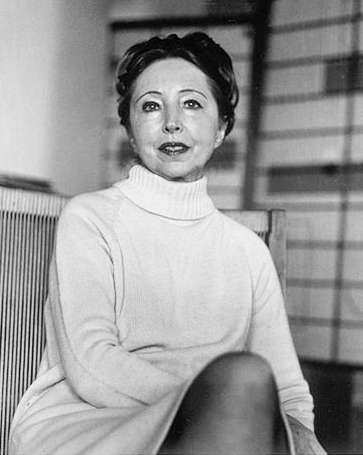Angela Anaïs Juana Antolina Rosa Edelmira Nin y Culmell , known professionally as Anaïs Nin, was an American essayist and diarist. Born to Cuban parents in France, Nin was the daughter of composer Joaquín Nin and Rosa Culmell, a classically-trained singer. Nin spent some time in Spain and Cuba, but lived most of her life in the United States, where she became an established author.
Beginning at age eleven, Nin prolifically wrote journals throughout her life, which spanned over sixty years up until her death. Her journals, many of which received publication during her life, detail her private thoughts and personal relationships, as well as detail surrounding the sexual abuse and incestuous relationship she had with her father. Also in her journals are details regarding her marriages to Hugh Parker Guiler and Rupert Pole, as well as her numerous affairs, including with psychoanalyst Otto Rank and writer Henry Miller, both of whom had a profound influence on her and her writing.
In addition to her journals, Nin wrote several novels, critical studies, essays, short stories, and several volumes of erotica. Much of her work, including the erotica collections Delta of Venus and Little Birds, was published posthumously amidst renewed critical interest in her and her work. Nin spent her later life in Los Angeles, California, where she died of cervical cancer in 1977.
✵
21. February 1903 – 14. January 1977
•
Other names
Anais Ninová
